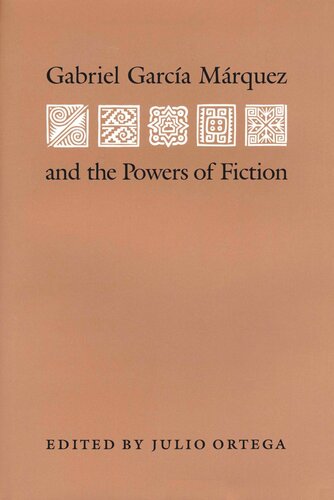

Most ebook files are in PDF format, so you can easily read them using various software such as Foxit Reader or directly on the Google Chrome browser.
Some ebook files are released by publishers in other formats such as .awz, .mobi, .epub, .fb2, etc. You may need to install specific software to read these formats on mobile/PC, such as Calibre.
Please read the tutorial at this link: https://ebookbell.com/faq
We offer FREE conversion to the popular formats you request; however, this may take some time. Therefore, right after payment, please email us, and we will try to provide the service as quickly as possible.
For some exceptional file formats or broken links (if any), please refrain from opening any disputes. Instead, email us first, and we will try to assist within a maximum of 6 hours.
EbookBell Team

4.0
76 reviewsTogether with the late Jorge Luis Borges, Gabriel García Márquez, the 1982 Nobel laureate, stands at the pinnacle of Latin American literature. His work, in the words of Julio Ortega, "contains its own 'deconstructive' force—a literary power capable of reshaping natural order and rhetorical tradition in order to 'carnivalize' the Borges' library and allow us to hear the voices—and the laughter—of a culture, that of Latin America." This reshaping force invites us to read the works of García Márquez in a new way, one that bypasses the traditional, inadequate approaches through Latin American politics, history, and "magical realism." In Gabriel García Márquez and the Powers of Fiction, noted scholars Julio Ortega, Ricardo Gutiérrez Mouat, Michael Palencia-Roth, Aníbal González, and Gonzalo Díaz-Migoyo offer English-speaking readers a new approach to García Márquez's work. Their poststructuralist readings focus on the peculiar sign-system, formal configuration, intradiscursivity, and unfolding representation in the novels One Hundred Years of Solitude, No One Writes to the Colonel, In Evil Hour, The Autumn of the Patriarch, and Chronicle of a Death Foretold and in several of the author's short stories. Also included as an appendix is a translation of García Márquez's Nobel Prize acceptance speech, "The Solitude of Latin America."